AARP Hearing Center

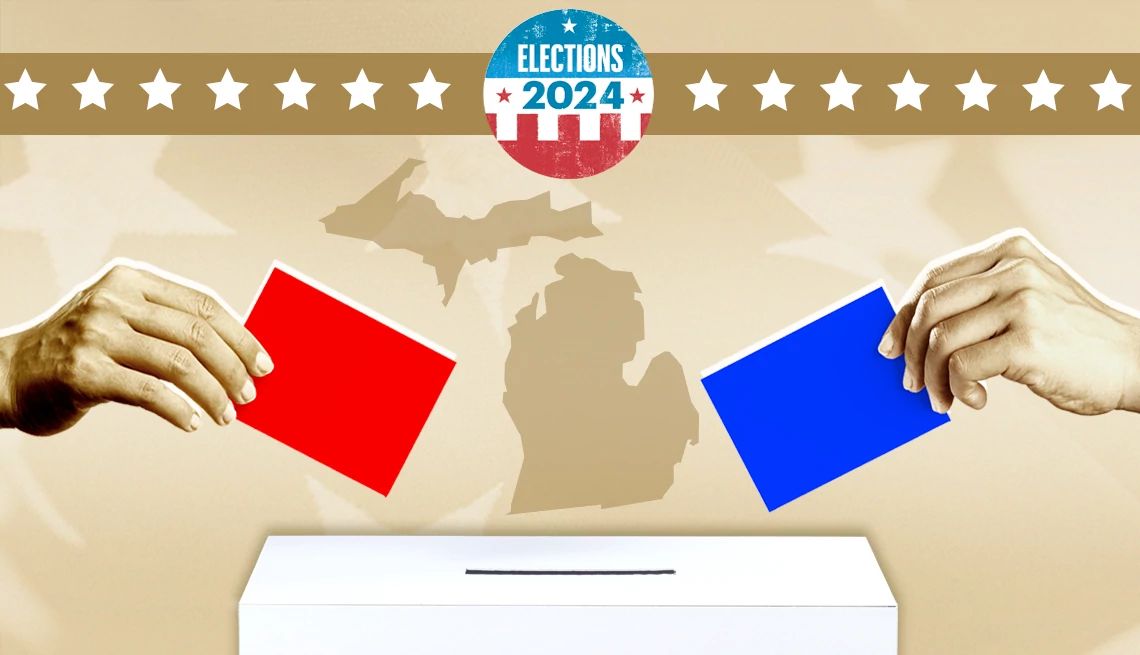
The race for president among Michigan voters remains a dead heat, with Republican Donald Trump and Democrat Kamala Harris tied for support in the battleground state, according to an exclusive AARP poll released Tuesday.
Each candidate garnered 46 percent of the vote among likely voters, according to the poll. Among voters 50-plus, those numbers remain nearly the same, with 47 percent for Trump and 46 for Harris.
The results show little movement from AARP’s last survey of Michigan voters in August — when 45 percent of voters said they’d support former President Trump and 43 percent backed Vice President Harris — and underscores how tight the race remains as the Nov. 5 election approaches. In the recent poll, Harris does well among women and those with college degrees. Trump dominates among men and voters without college educations.
Harris became the Democratic presidential nominee on Aug. 5 after President Biden announced he was exiting the race.

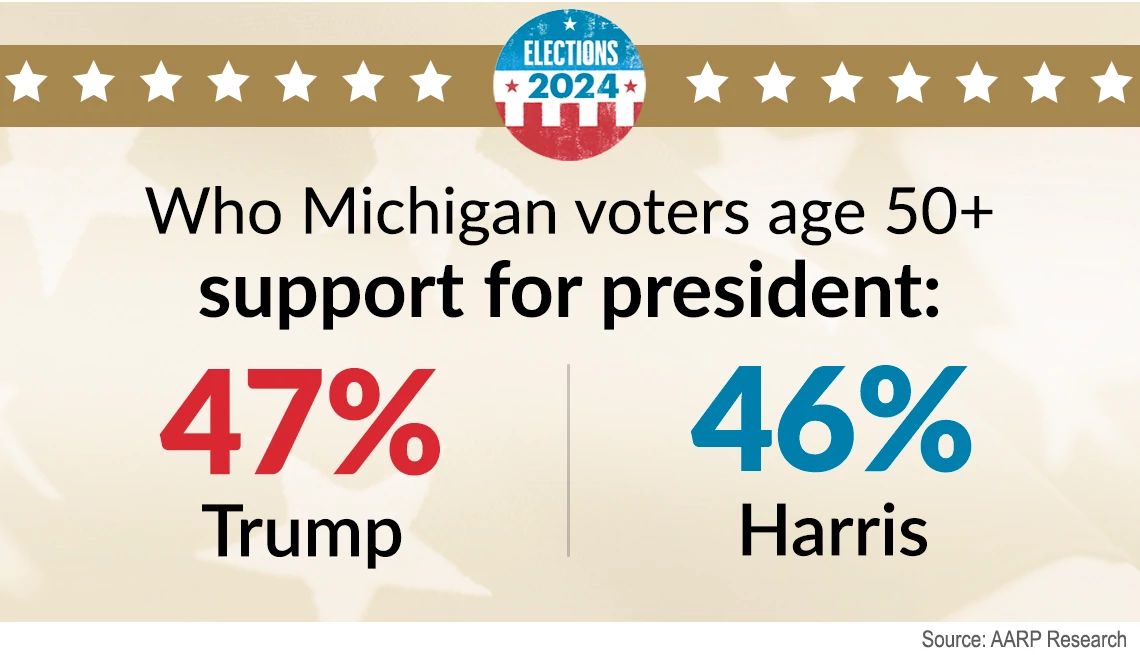
Pollsters interviewed 1,382 likely Michigan voters about the presidential and U.S. Senate races and about the issues motivating them to vote. The poll’s margin of error is 4 percent for all voters and 3.5 percent for voters 50-plus. The bipartisan polling team of Republican firm Fabrizio Ward and Democratic firm Impact Research conducted the AARP-commissioned survey from Oct. 2 to Oct. 8.
“The race in Michigan couldn’t be closer,” says Jeff Liszt, a partner at Impact Research. “Everything in Michigan is just extremely competitive right now.”
Cultural issues like abortion and immigration drive each party’s base, but pocketbook issues — such as inflation and Social Security — are top of mind for voters in both camps, says Bob Ward, a partner with Fabrizio Ward.































.jpg?crop=true&anchor=13,195&q=80&color=ffffffff&u=lywnjt&w=2008&h=1154)





























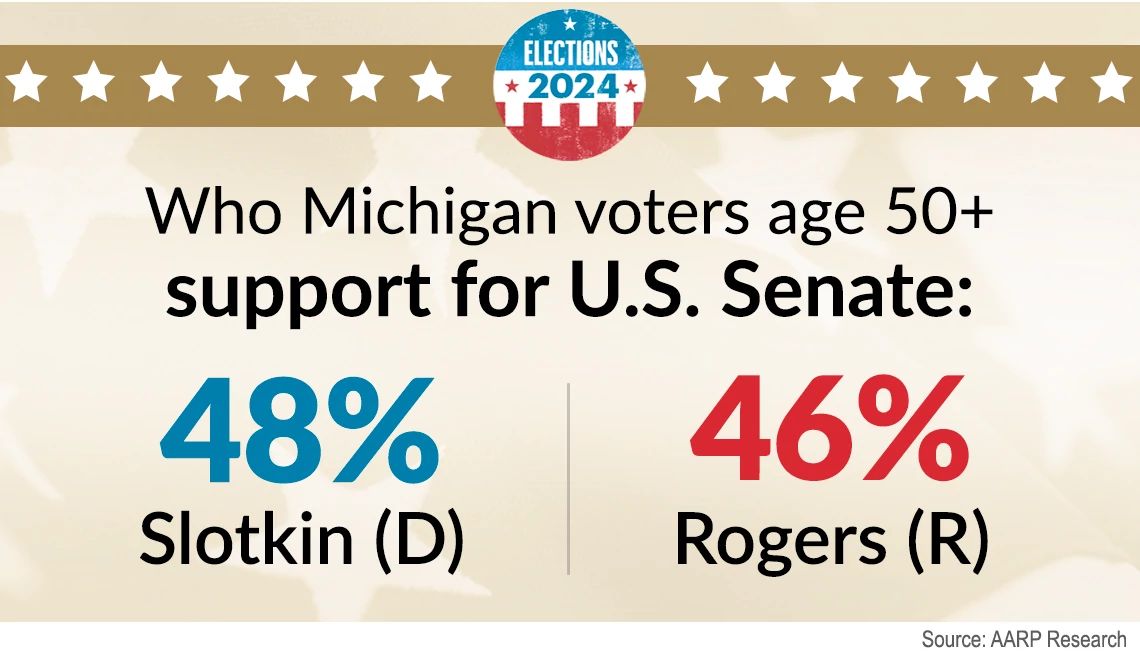
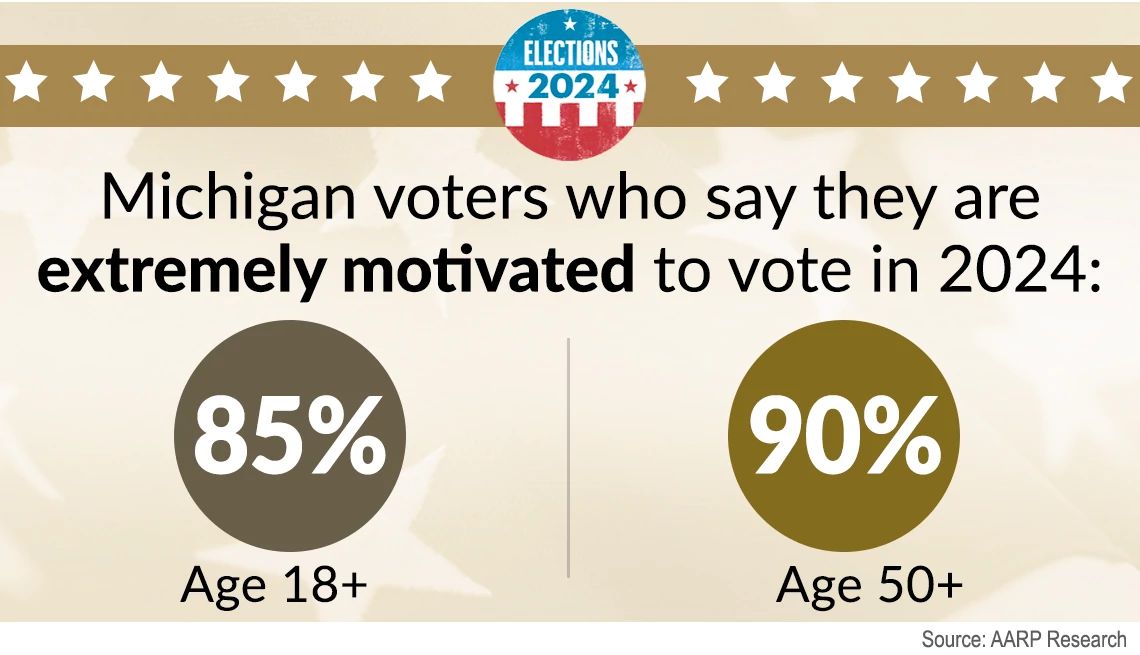

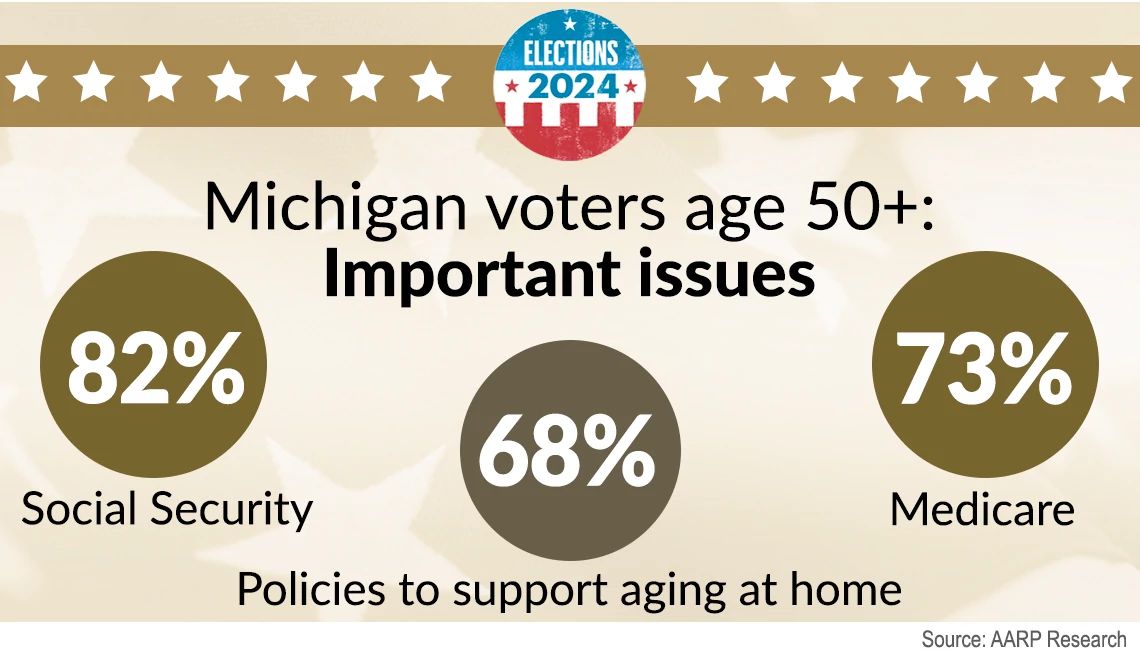


More From AARP
AARP Exclusive: Harris and Trump Reveal Where They Stand
Presidential candidates on Social Security, Medicare, prescription prices and moreHow to Persuade Your Family to Vote This Year
Start conversations about the importance of showing up on Election DayMeet Election Poll Workers Showing Up Year After Year
Civic responsibility, social connections and even pay are prime motivatorsRecommended for You